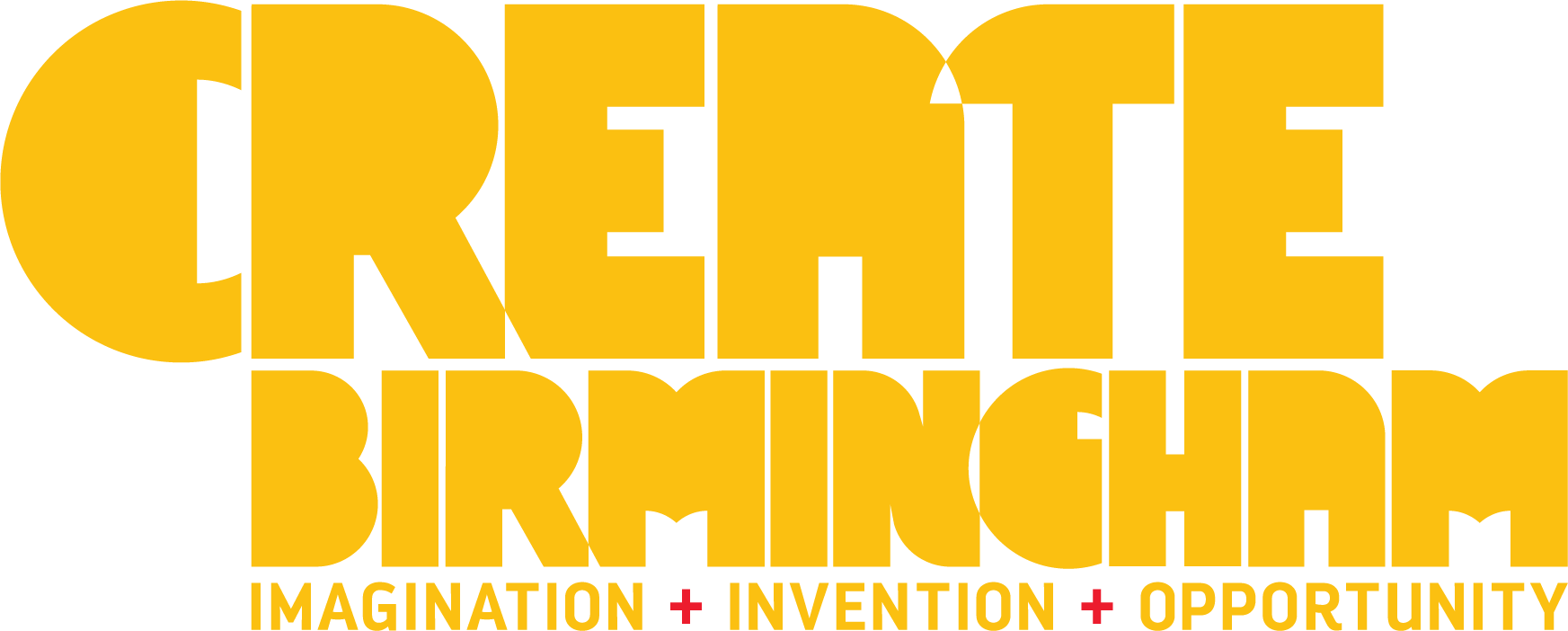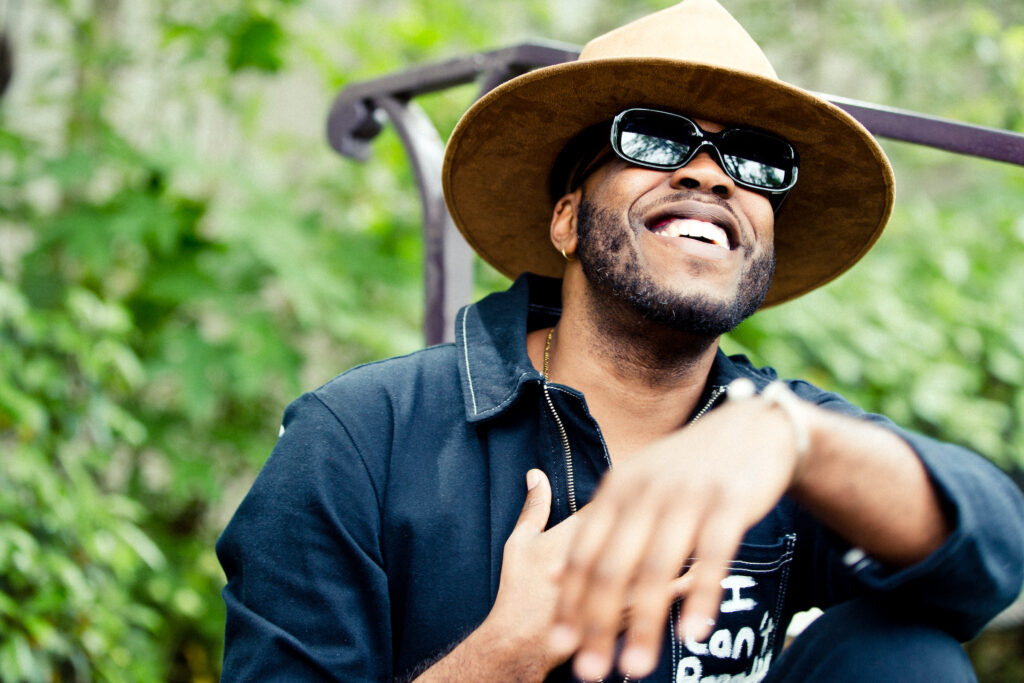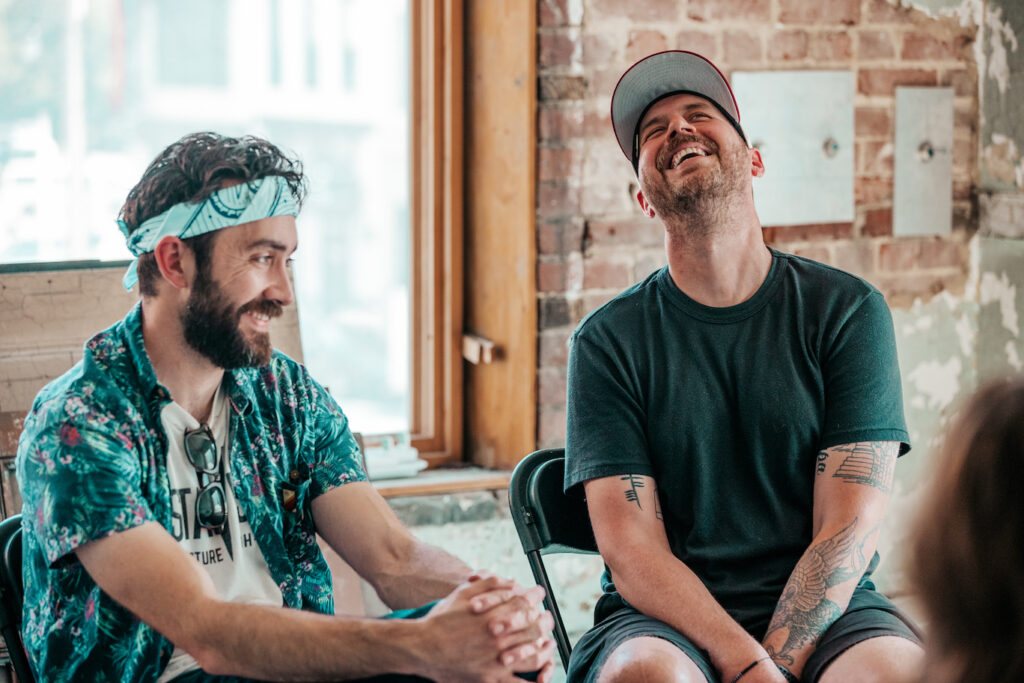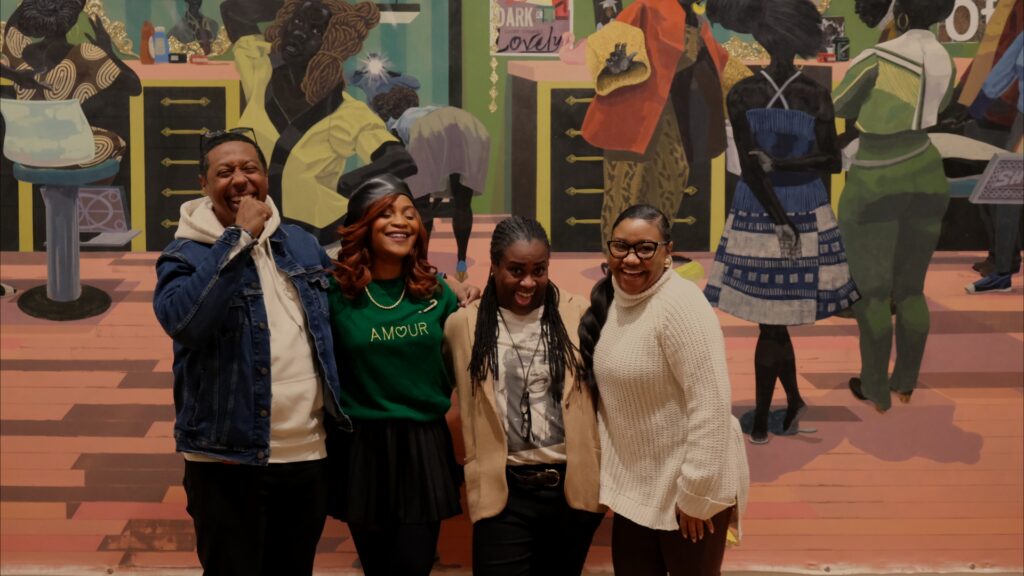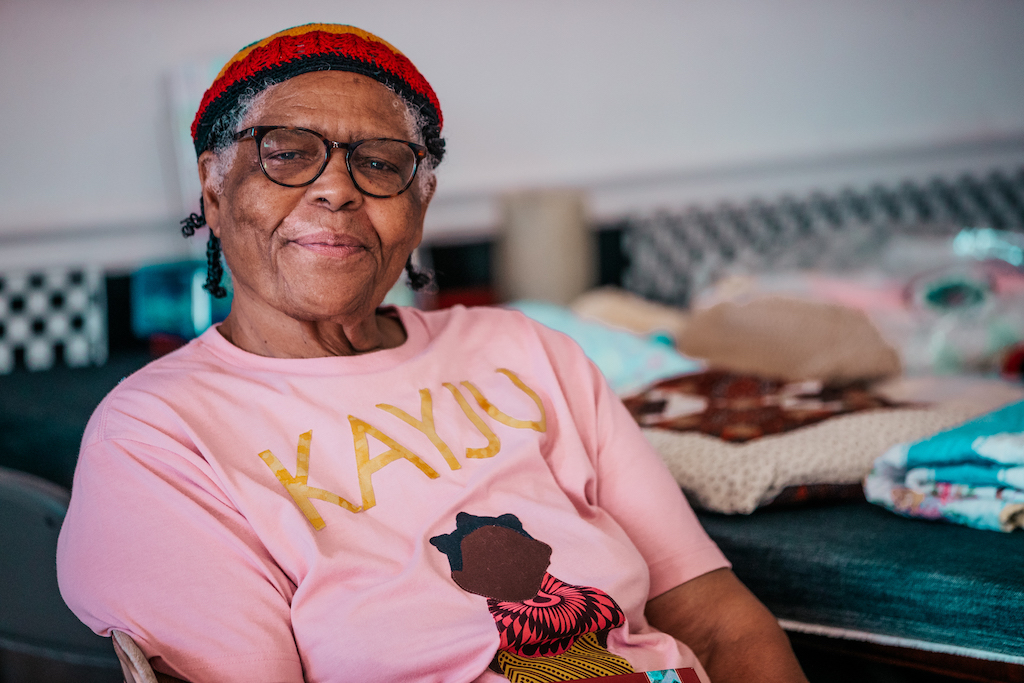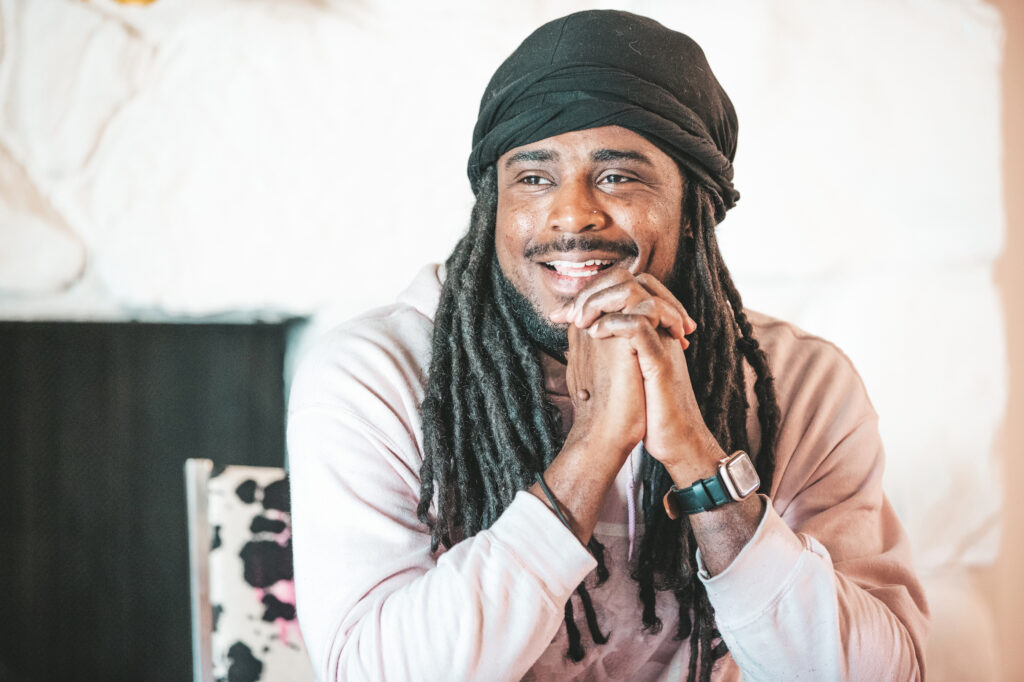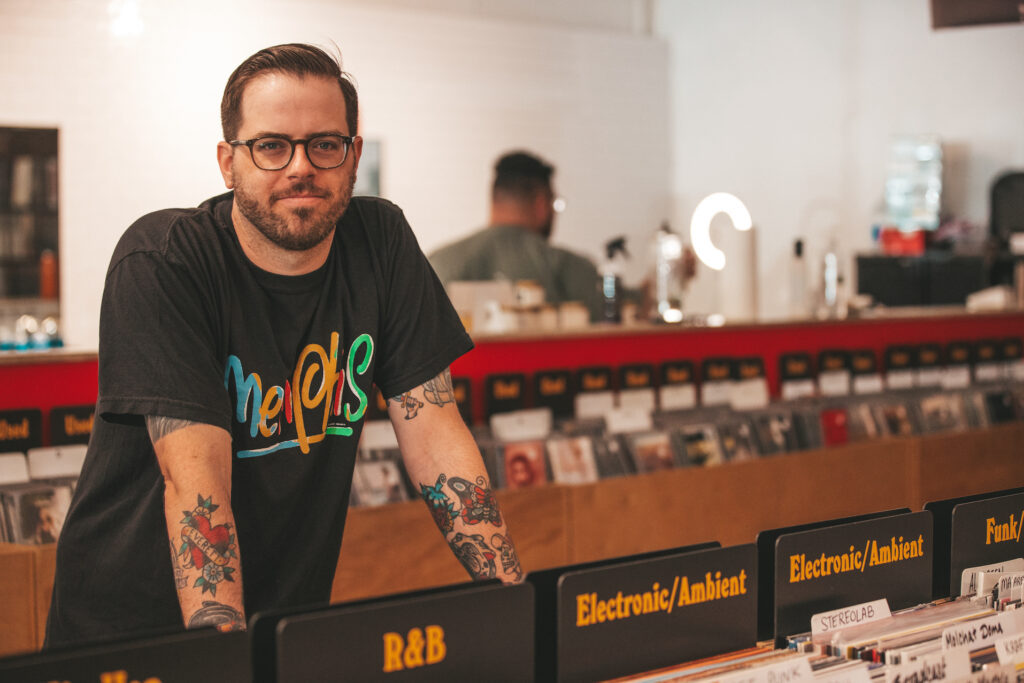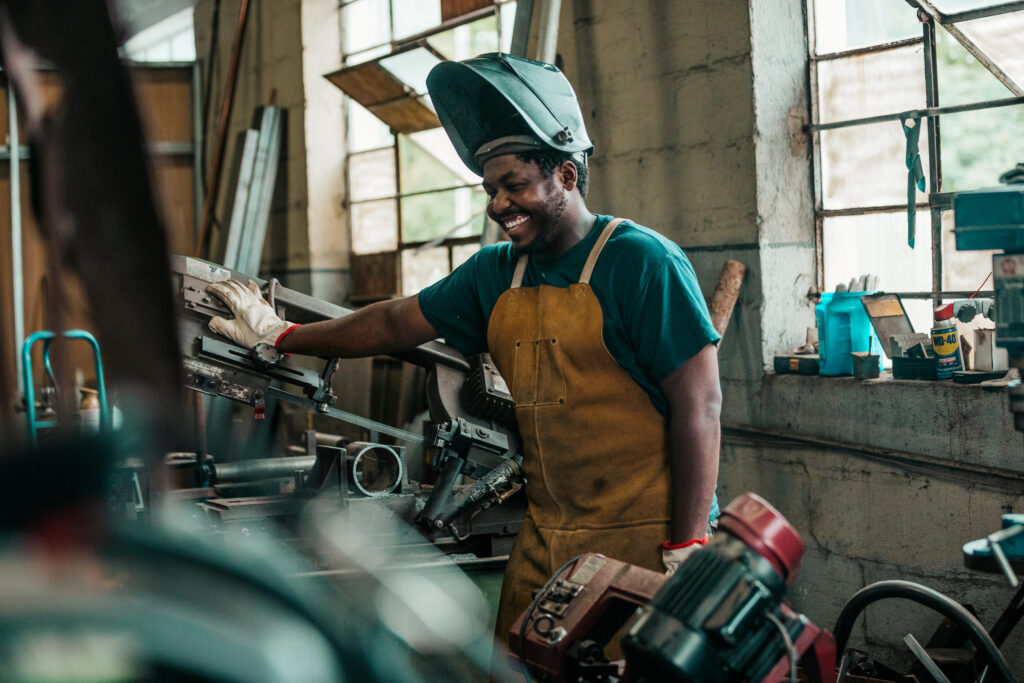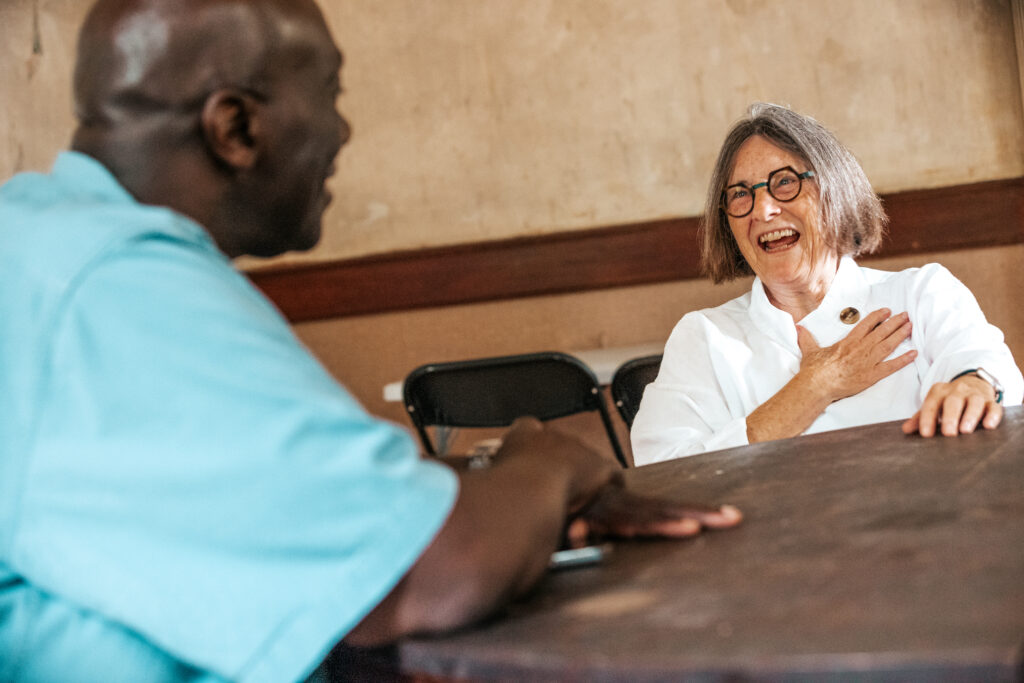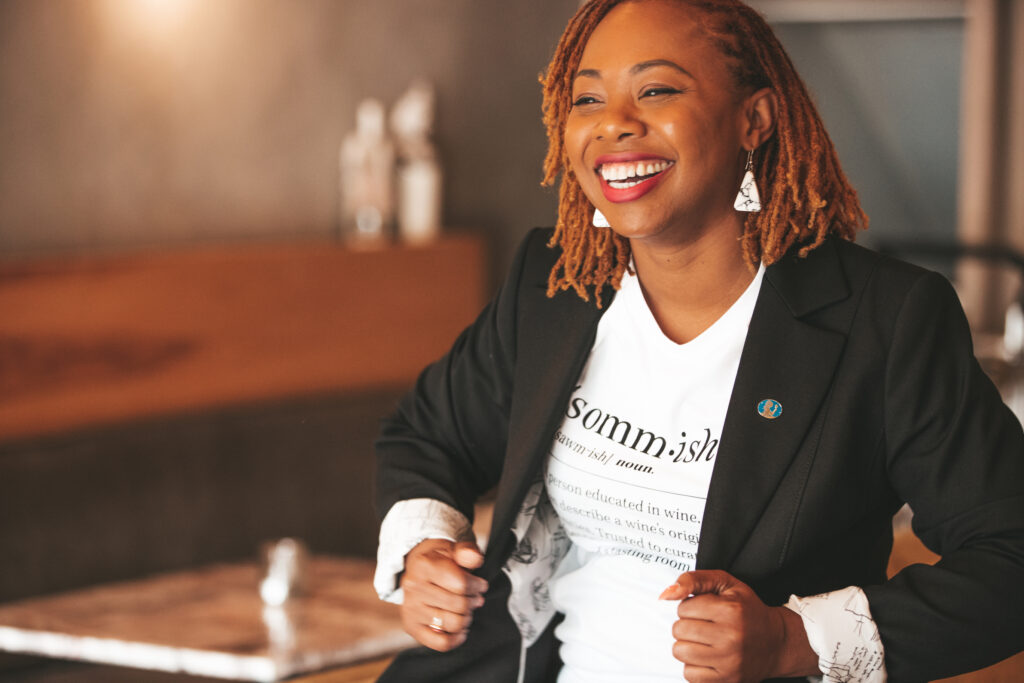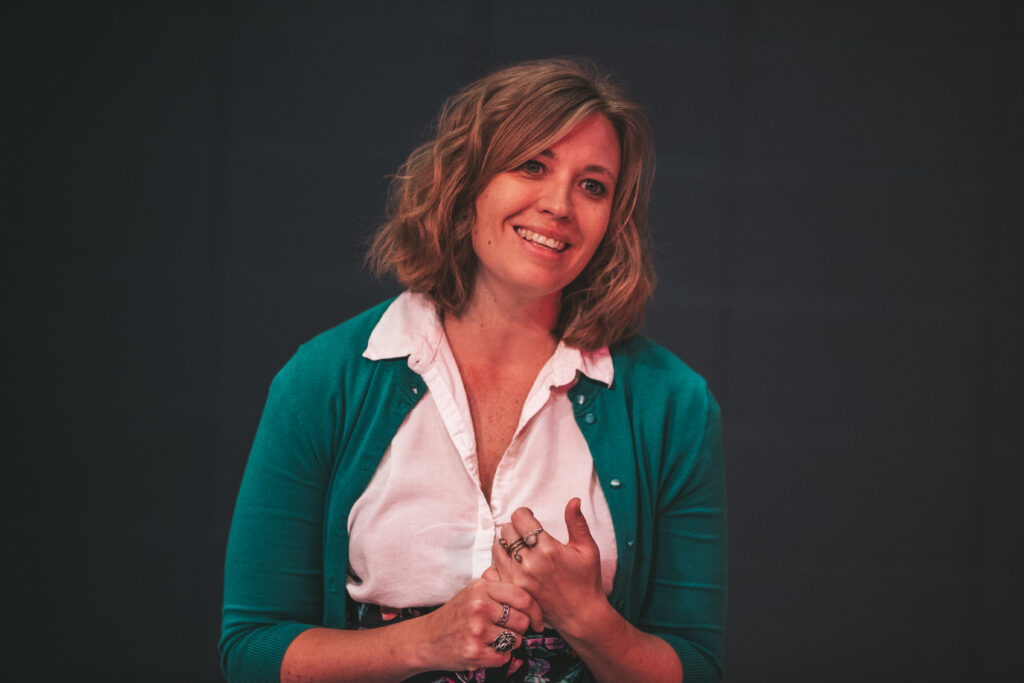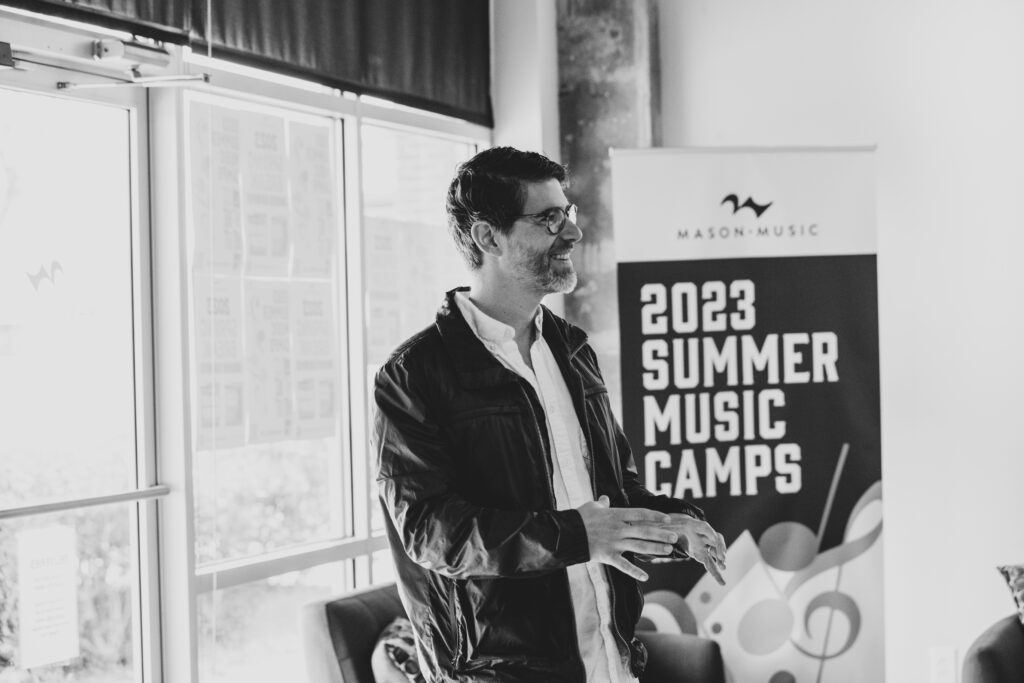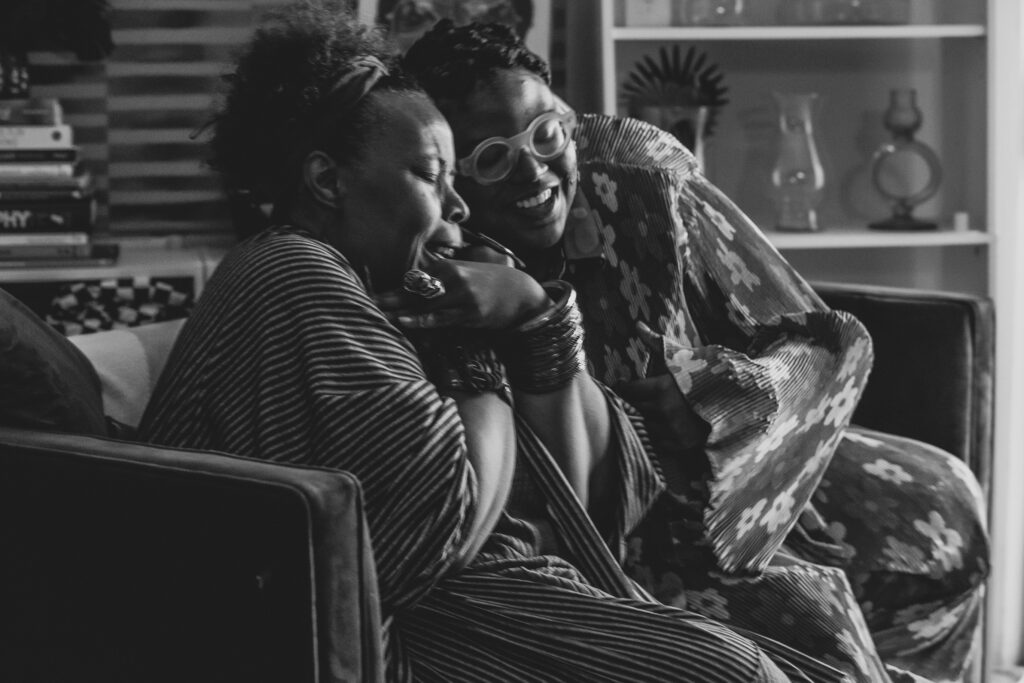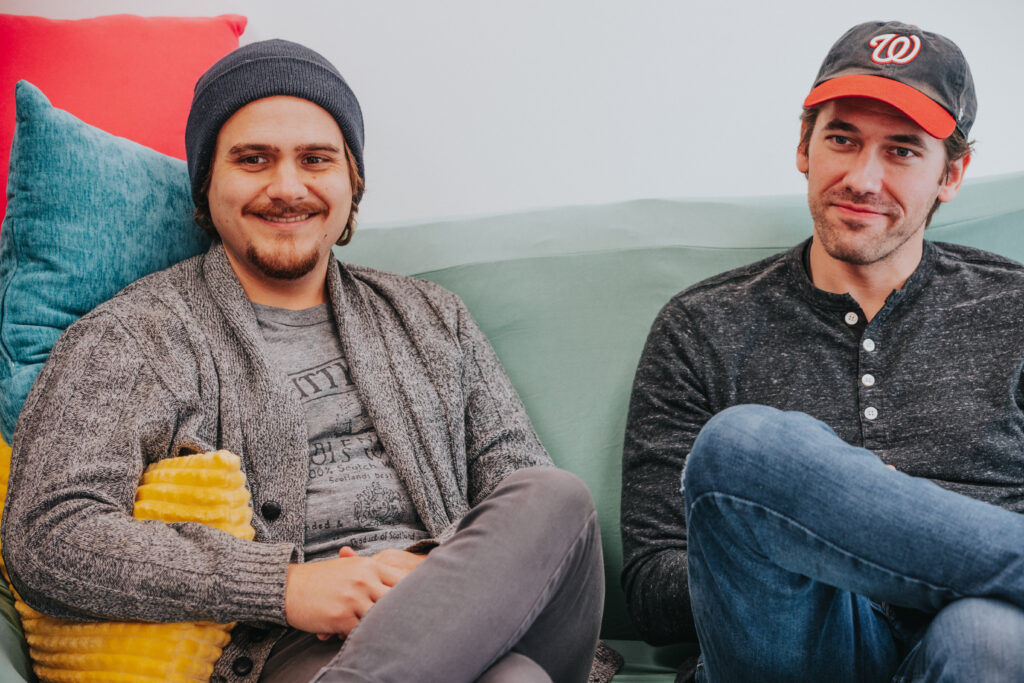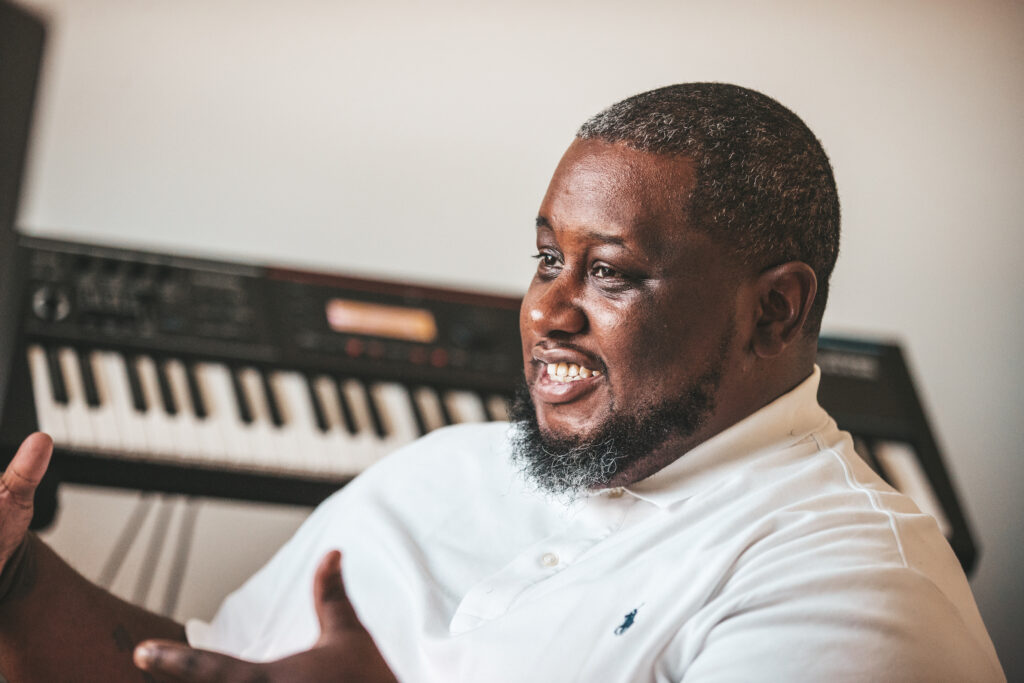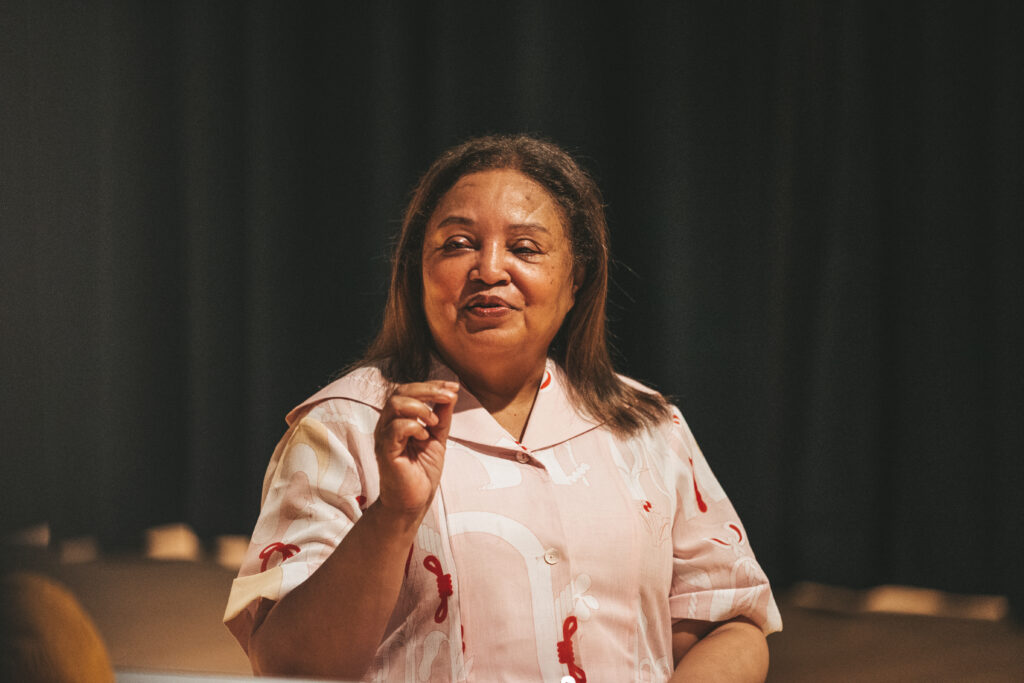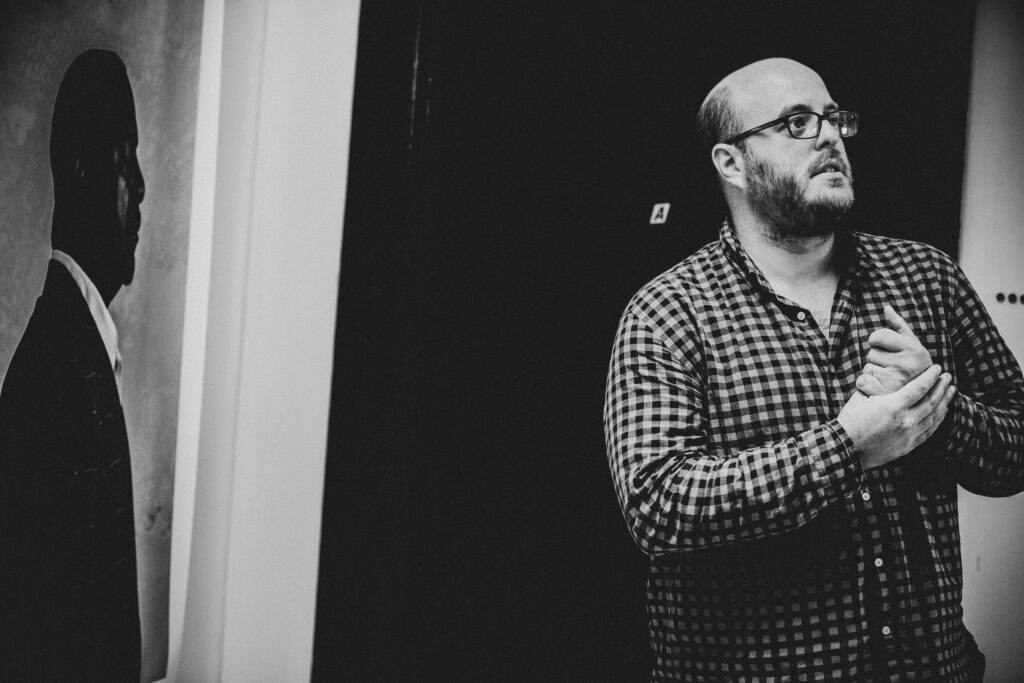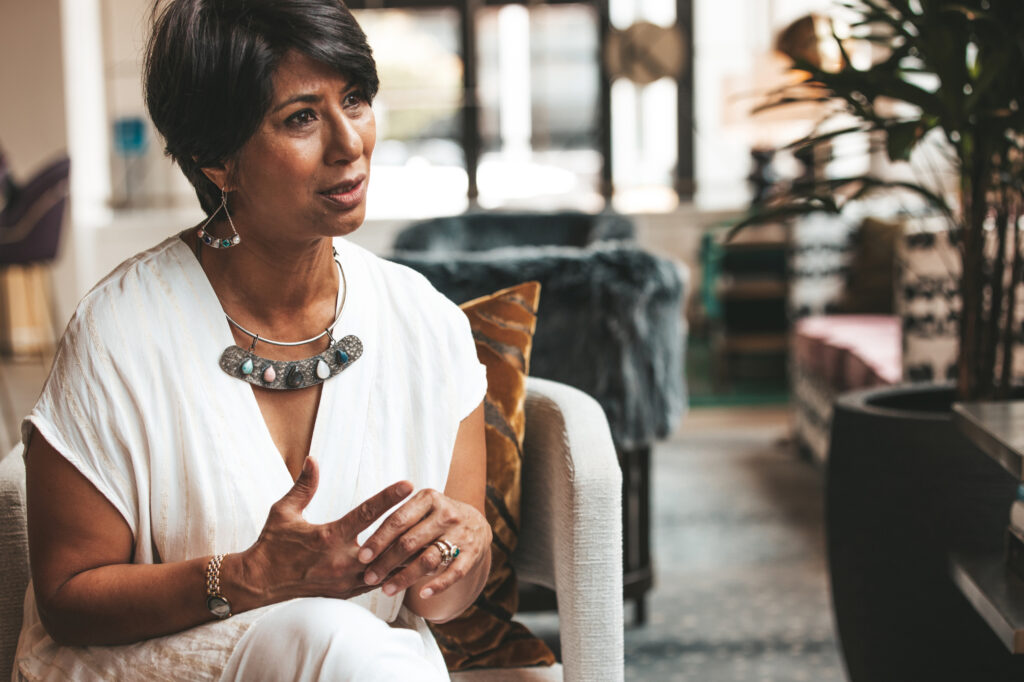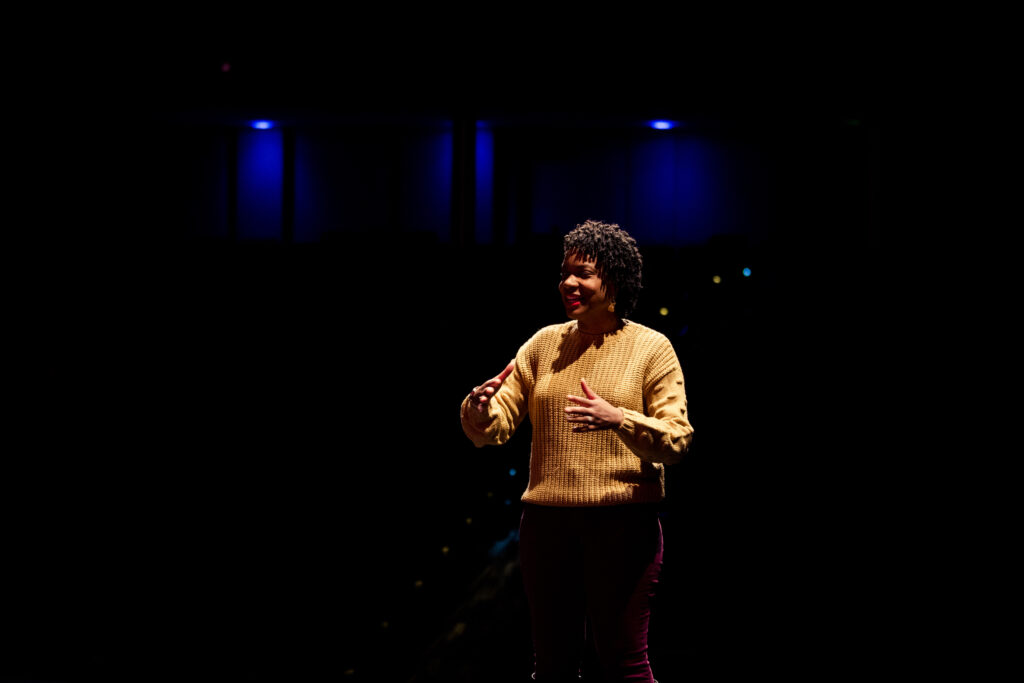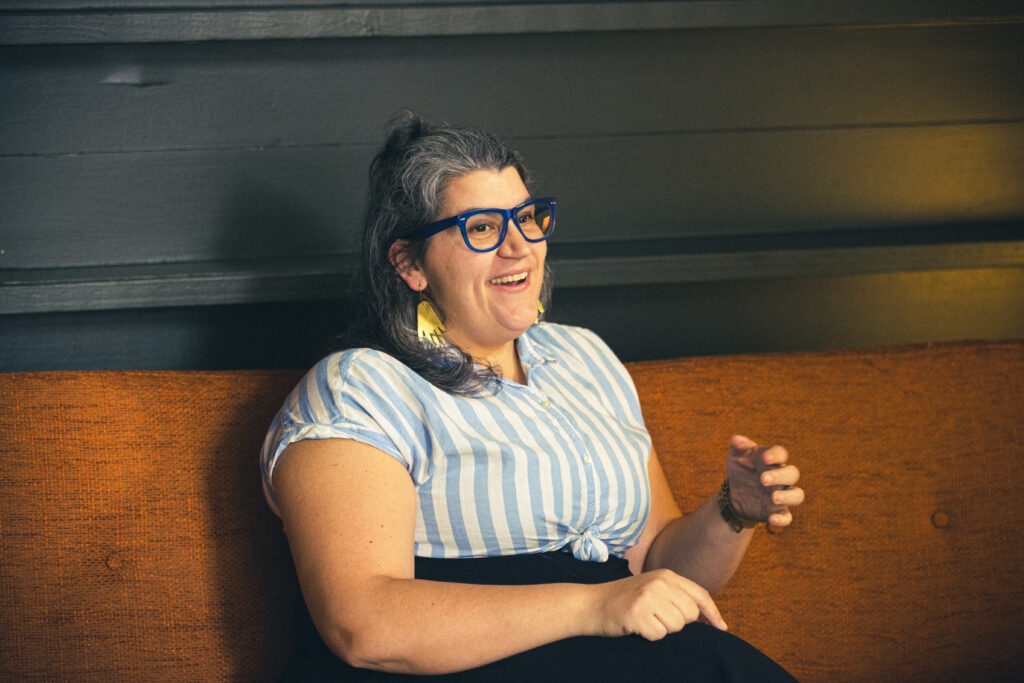Interview by Tonia Trotter
Photographs by Ambre Amari
Designer Daniel Grier believes in the power of art, connection, and reimagined value. The Magic City Fashion Week founder and managing partner is focused on using fashion to create a platform for under-recognized designers and makers and celebrate Birmingham’s unique creative community. His line, Splashed by DKG, is a collection of artful clothing and accessories — often repurposed from vintage pieces and given new life. Daniel shares the experiences, lessons, and shifts that were catalysts for his creative pursuits and an opportunity to rediscover himself.
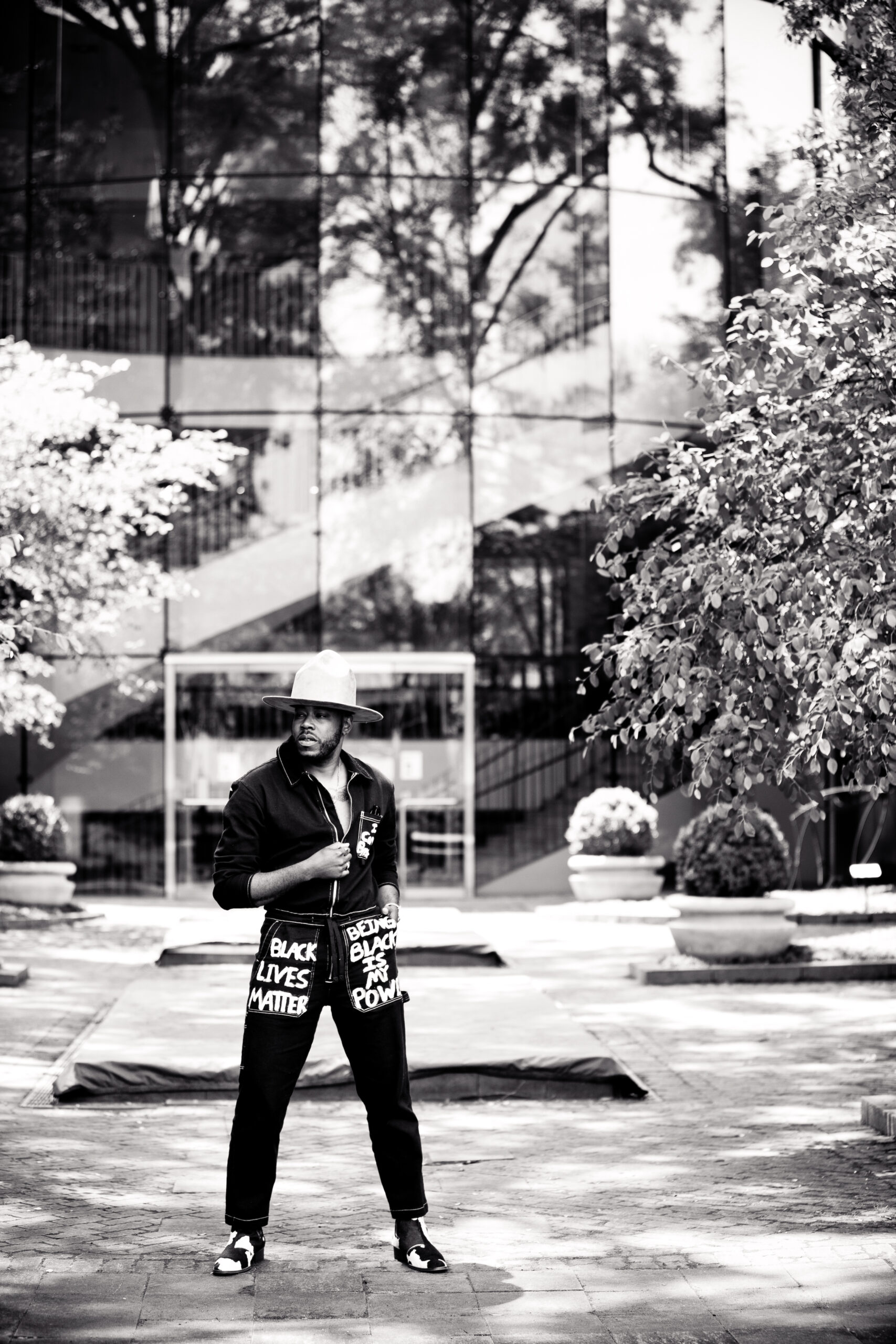
Although you grew up in Birmingham, you moved to Atlanta and began to forge your career there. What recently brought you back to your hometown?
I felt that I needed to move away for a bit to jazz up my profile. My clothes are bold and often intended for the stage, so I wanted to find a market for that. I had this idea of what my pipeline to success was supposed to be. So, I moved to Atlanta where I was working as a community health educator — another passion of mine — and if I wasn’t there I was building my brand.
Living in Atlanta was glamorous from the outside looking in. I was working a lot in and around the circles I thought symbolized success. But I was dying inside. I wanted to be near my family, I was burnt out and less passionate about my work, and I think I lost myself for a little bit. A lesson I’ve learned and a mantra I’ve adopted is “You can always come back.” That’s coming back home, coming back to your passion and purpose, and coming back to who you are to reset and refocus.
I also have a 12-year-old son, Aedan, and my pursuits have to shift to accommodate whatever he’s got going on. That was a big factor in my decision to come back to Birmingham and reset — making sure I’m close to my family and his mother.
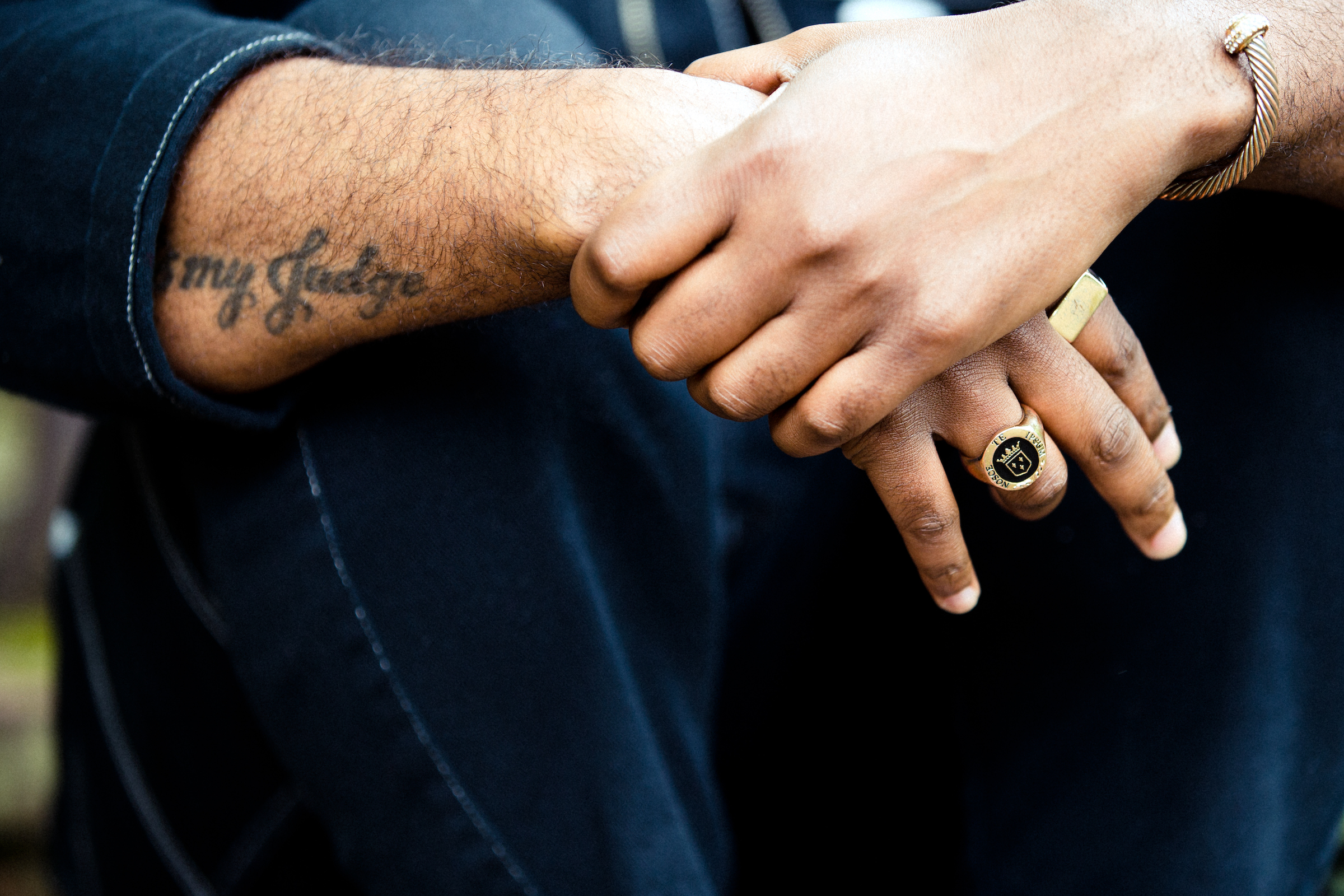 The past year was uniquely challenging for parents toggling between working and schooling at home. What lessons did you learn as an entrepreneur and a parent?
The past year was uniquely challenging for parents toggling between working and schooling at home. What lessons did you learn as an entrepreneur and a parent?
This past year, Aedan has been in virtual school, and that has been an eye-opener — and a mirror — to how similar we learn and work. It’s created some powerful teaching moments for both of us, and it’s a lot like entrepreneurship. You have to set goals, keep yourself organized, and power yourself forward. Things aren’t just going to happen for you. We’ve had to be innovative and find new ways to have fun. The pandemic has been rough, but it’s also an opportunity to focus inward. I tell my son, “We have to be better when we come out of this than we were before.”
I quit my day job last July. That was a leap of faith. The world slowed down, and I saw it as an opportunity to sharpen my craft — my sewing and photography skills. Aedan was home with me, so he helped me. He wants to be an actor and take lessons, so I told him he had to earn the money by working. He certainly has his sights set high, and I love that. His mother has authored a book, and I am a designer, so working in a creative industry and following your passion is something he just knows. He thinks we are cool… for now.
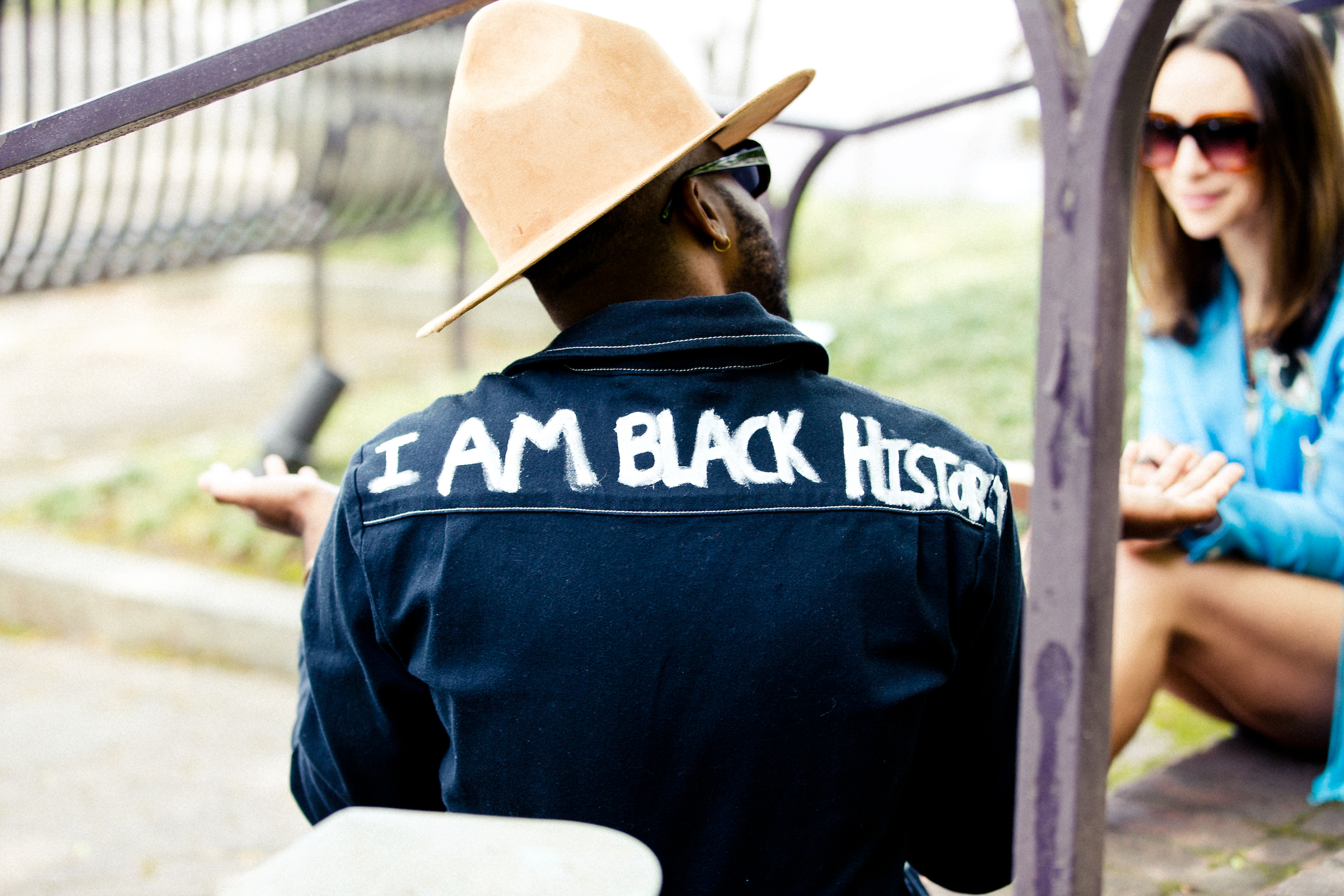 Often, we are shaped more profoundly by our challenges than successes. What perspective have you gained from your own challenges?
Often, we are shaped more profoundly by our challenges than successes. What perspective have you gained from your own challenges?
As a child of two working parents who weren’t together, I spent a lot of time alone. That had its challenges, but it made me creative; I had to entertain myself. I would use curtains and blankets to make dresses for celebrities in my mind. I understood that I was gay early in my childhood, and I loved fashion and entertainment. There was an unspoken air of judgment from some of my older family members, and I’d perceived that who I was and what I loved was something I should keep to myself in my room with my door locked.
In middle school, my mom moved us from Fairfield to Gardendale, and that expanded my worldview. The life I wanted seemed a little closer but still so far away in different ways. My mom managed the Wendy’s in town, and when I wasn’t bullied for being gay, I was made fun of for my mom’s job and having to walk because I didn’t have a car. Ultimately, that strengthened my belief in who I am and it instilled a sense of empathy in me.
 Those challenges don’t ever go away. They just change. That sense of “not belonging” prepared me for adulthood and a career where people don’t always return your calls or you don’t find your way into the “cool kids club” within your field. I started Magic City Fashion Week exactly for that reason. I wanted to create opportunities for people who weren’t getting recognition across the wider scope of Birmingham’s creative scene. Black people, in particular, needed a platform to be seen, and MCFW could be a bridge that connected people through a shared interest in art and fashion.
Those challenges don’t ever go away. They just change. That sense of “not belonging” prepared me for adulthood and a career where people don’t always return your calls or you don’t find your way into the “cool kids club” within your field. I started Magic City Fashion Week exactly for that reason. I wanted to create opportunities for people who weren’t getting recognition across the wider scope of Birmingham’s creative scene. Black people, in particular, needed a platform to be seen, and MCFW could be a bridge that connected people through a shared interest in art and fashion.
Was there a defining moment where you realized your creative skillset could be more than an interest? That there was purpose in your talent?
I have a half-sister, and she lost her mom in high school. When it was time for her prom, she needed a dress. That’s something she would’ve shopped for with her mom, but I designed a dress for her 10th, 11th, and 12th-grade years. We got to know each other and bond on a new level. And I was able to watch her grow through her grief. She was named prom queen her senior year, and I got the chance to see this change, confidence, and happiness in her. That was a moment where it started to come together — how my gift and skillset can facilitate a connection in important moments. It’s more than just clothes.
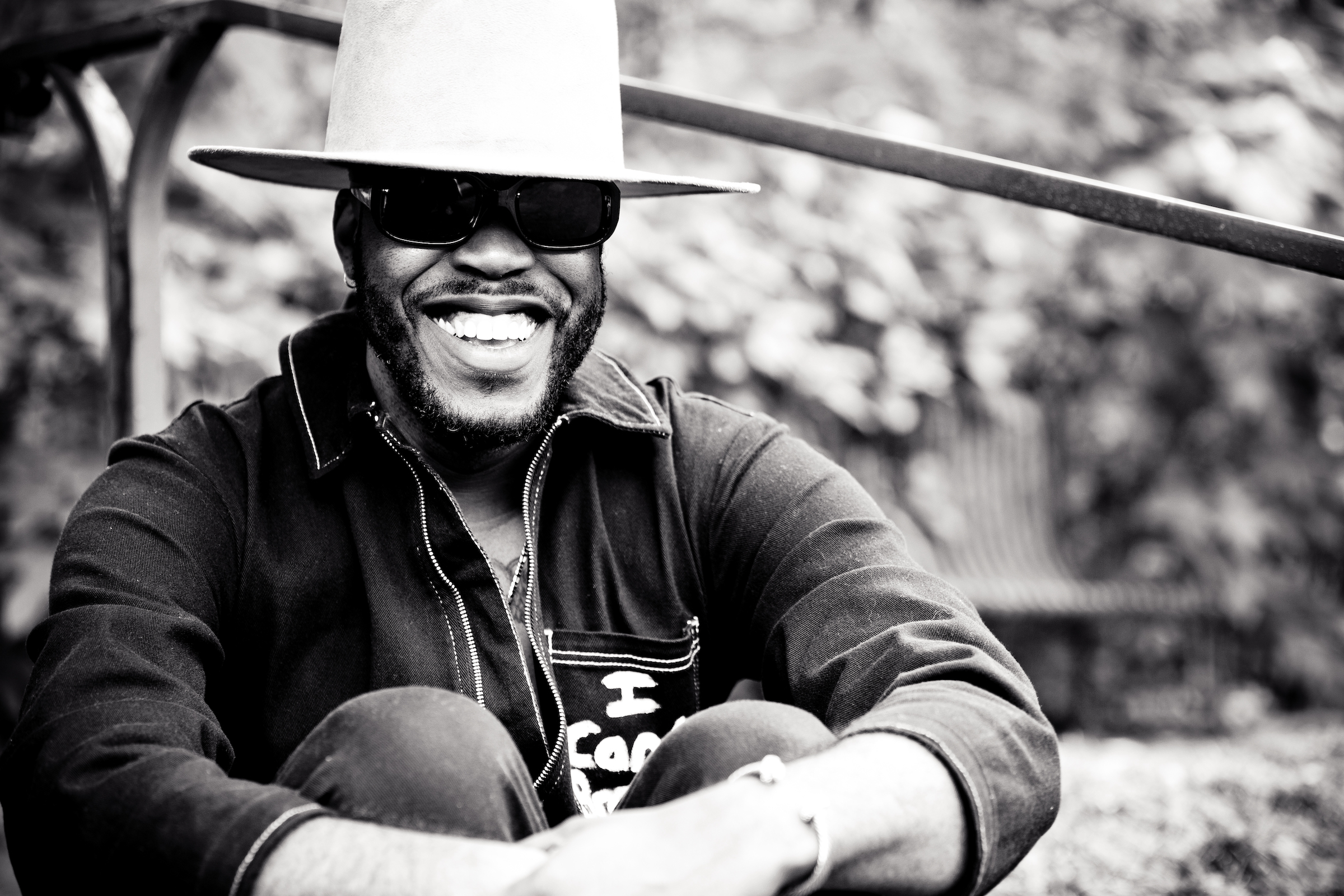 How has returning home inspired you and your work? Where do we have room for improvement?
How has returning home inspired you and your work? Where do we have room for improvement?
I’m inspired by Birmingham. I drive through some of our most neglected neighborhoods, and I look at buildings that have become dilapidated. My vision and my art are about repurposing and reimagining things to give them new life. I work with denim a lot, and I want to create a new life for something that might have been considered worn out and discarded. It’s more than sustainability. It’s about adding value to what’s already there.
Birmingham can be very cliquey. But I think it’s beginning to change. We have organic growth fueled by the creative industry, and our vibe is unique. I hope that people start to see how special that is and invest in our city, invest in our people, and invest in the innovation that is here.
